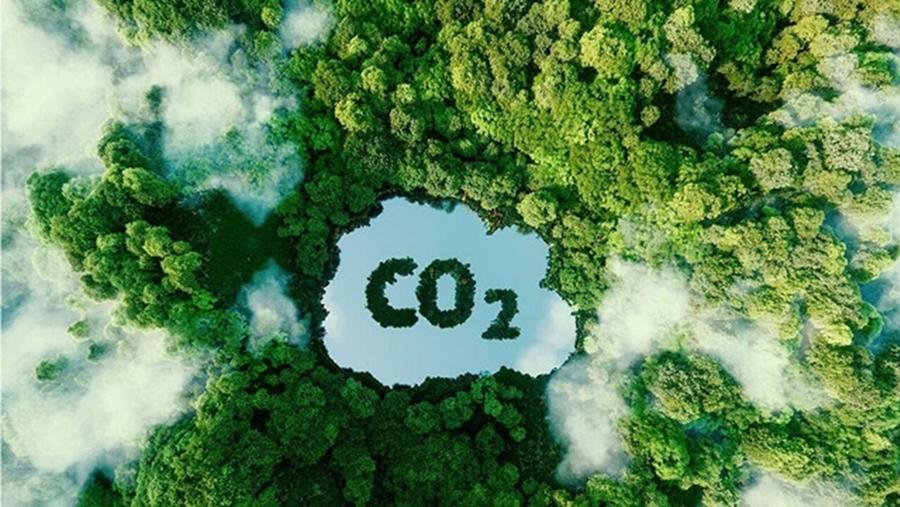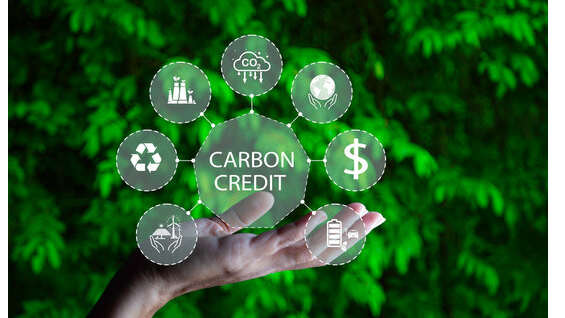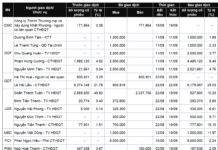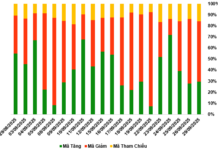On May 2, 2024, Prime Minister Pham Minh Chinh issued Directive No. 13/CT-TTg on “Strengthening carbon credit management to implement Nationally Determined Contributions.”
DEVELOPMENT OF CARBON CREDIT MARKET AND MANAGEMENT MECHANISMS IS URGENT
The directive emphasizes the implementation of the commitment to achieve net zero emissions in 2050. At the 26th Conference of the Parties to the United Nations Framework Convention on Climate Change, Vietnam updated its Nationally Determined Contributions (NDC), specifying international commitments to emissions reduction.
Therefore, implementing the NDC is the responsibility of nations to implement the United Nations Framework Convention and the Paris Agreement on climate change (which includes the goal of reducing greenhouse gas emissions in the energy, agriculture, land use, forestry, and waste management sectors, as well as industrial processes).
According to the Prime Minister’s Directive, developing a carbon market and mechanisms for managing, trading, and offsetting carbon credits is a key solution to achieving the goal of reducing greenhouse gas emissions at a reasonable cost, promoting development, contributing to enhancing the competitiveness of businesses, and increasing the income of people participating in greenhouse gas emission reduction projects, as well as protecting and developing forests.

In Vietnam, since the mid-2000s, many businesses have implemented programs and projects to generate carbon credits and trade them on the voluntary market, especially carbon credits from programs and projects under the Clean Development Mechanism (CDM).
However, the Directive also points out that in the past, there has been a lack of comprehensive, accurate information and public opinion about the carbon market and carbon credit management mechanisms, especially the activities of generating and managing carbon credits from forests and some other sectors. Many organizations, businesses, and individuals do not have a proper understanding of the carbon market and how to generate carbon credits for trading on the market.
Carbon credit management includes establishing and implementing regulations on mechanisms for managing the generation and trading of carbon credits on a voluntary basis or offsetting greenhouse gas emission quotas; this forms the basis for developing a domestic carbon market and participating in the global market.
The Directive emphasizes that the trading of carbon credits and greenhouse gas emission reduction results must ensure the achievement of national greenhouse gas emission reduction targets, and must balance the interests of the state, the people, businesses, and partners.
PILOT IMPLEMENTATION AND DEVELOPMENT OF DOMESTIC CARBON MARKET, INTERNATIONAL TRADING
To strengthen carbon credit management in order to promote the development of a carbon market, ensure the implementation of the NDC, harmonize the interests of the state, businesses, the people, and participating partners, and provide accurate and comprehensive information about the market and the methods of generating carbon credits for trading on the market, the Prime Minister requests that the following ministries: Industry and Trade, Transport, Construction, Agriculture and Rural Development, and Natural Resources and Environment promptly issue a plan for mitigating greenhouse gas emissions at the sectoral level and organize its implementation to ensure that the targets committed to under the NDC are met, and that the plan is completed in the third quarter of 2024;
The Prime Minister also requests that these ministries take the lead in coordinating with relevant agencies to advise competent authorities on organizing negotiations, signing, and implementing agreements or contracts with international partners on the transfer of carbon credits, and greenhouse gas emission reduction results in areas under their management, to ensure the achievement of emission reduction targets under the NDC; and to assess the level of readiness to participate in the carbon market in a number of sectors.

For the Ministry of Natural Resources and Environment in particular, the Prime Minister requests that it promptly study the establishment of a national carbon credit registry to manage programs, projects, and activities that reduce greenhouse gas emissions and generate carbon credits to serve the pilot implementation and development of a domestic carbon market and international trading.
At the same time, it shall take the lead in coordinating with relevant ministries and agencies to promptly develop a Decree amending and supplementing a number of articles of Decree No. 06/2022/ND-CP, including provisions on carbon credit management, domestic and international carbon credit trading, and submit it to the Government by July 30, 2024.
The Ministry of Agriculture and Rural Development is assigned to take the lead in coordinating with the Ministry of Natural Resources and Environment, relevant agencies, and localities with forests to promptly establish a database on the current status and assessment of the potential for reducing emissions and carbon sequestration from forests at the national, regional, and local levels up to 2030 and taking into account 2050;
It will also determine the potential for reducing emissions and carbon sequestration from forests to contribute to the implementation of the NDC targets, to serve as a basis for trading forest carbon credits with international partners. This task is to be completed by October 31, 2024.
The Prime Minister requests that the following ministries: Industry and Trade, Transport, Construction, Agriculture and Rural Development, and Natural Resources and Environment promptly issue a plan for mitigating greenhouse gas emissions at the sectoral level. They shall take the lead in coordinating with relevant agencies to advise competent authorities on organizing negotiations, signing, and implementing agreements or contracts with international partners on the transfer of carbon credits, greenhouse gas emission reduction results in areas under their management; assess the level of readiness to participate in the carbon market in a number of sectors…
The Prime Minister also requests that the Ministry of Agriculture and Rural Development coordinate with the Ministry of Natural Resources and Environment, relevant agencies, and local authorities with forests to develop national standards for forest carbon credits and detailed regulations on measuring, reporting, and verifying forest carbon sequestration; and to develop a pilot policy and mechanism for paying for carbon credits based on results for areas specializing in high-quality, low-emission rice cultivation.
For the Ministry of Industry and Trade, the Directive requests that the ministry take the lead in coordinating with relevant agencies to review the legal basis, the current situation in Vietnam, and international experience in the management, purchase, and trading of renewable energy certificates (RECs) in conjunction with the implementation of national emission reduction targets, and report to the Prime Minister by September 30, 2024.
The Ministry of Finance shall take the lead in coordinating with the Ministry of Natural Resources and Environment, relevant ministries, and agencies to complete the Project on Developing a Carbon Market in Vietnam, and submit it to the competent authority for approval, ensuring the goals of organizing, implementing pilots, and officially launching the market; and to study and assess the experiences of countries in the region and internationally in building, managing, operating, and developing carbon markets.
The localities shall coordinate with the Ministry of Natural Resources and Environment, relevant ministries, and agencies to review and request that organizations and businesses implementing programs and projects under the mechanism for trading and offsetting carbon credits in their localities be responsible for providing information about the programs, projects, and the number of carbon credits generated and traded to the Ministry of Natural Resources and Environment for synthesis.



































